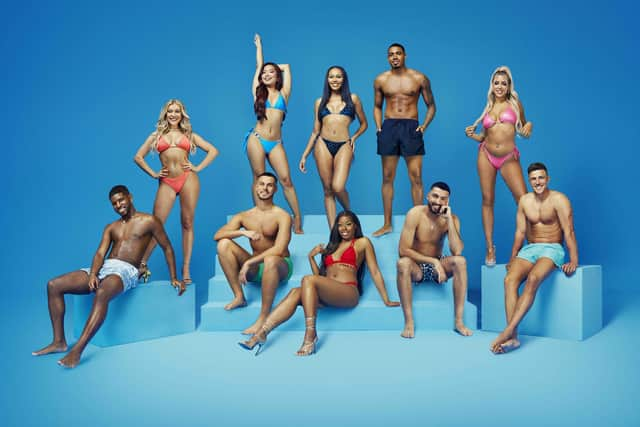Love Island: UCLan academic discusses the psychological effect of the show and how to combat it
and live on Freeview channel 276
This week, ITV2 revealed the first 10 contestants to take part in the summer season of Love Island, starting on Monday, June 5.
Audiences are set for another summer of dramatic recouplings, dumpings and bombshells, but a wellbeing lecturer at the University of Central Lancashire says it’s important to remember that this brand of ‘reality’ TV does not always reflect the real world, especially when it comes to body diversity.
Advertisement
Hide AdAdvertisement
Hide AdSpeaking about how watching scantily-clad islanders affects viewers, Lowri Dowthwaite, lecturer in psychological interventions at UCLan, said: “It depends really on the way that we do that comparison, whether it’s positive or negative.


“We do know that there’s a big link between that kind of negative comparison and people feeling bad about themselves or feeling that they’re not good enough.”
A 2019 YouGov survey found that 75% of Love Island viewers agreed with the statement ‘it is important for me to look physically attractive’, the majority of which (43%) were 18 to 29.
Dowthwaite commented: “When people are younger, I think naturally we are much more self-conscious and much more preoccupied with the way that we look.”
Advertisement
Hide AdAdvertisement
Hide AdShe noted a possible gender divide as well, adding: “Women have a tendency to be to compare themselves a lot more. Rumination around that as well tends to be higher in women… and that can be quite damaging.”


Explaining how this comparison can affect our behaviour, Dowthwaite said: “People get drawn into that negative self-evaluation, where they maybe focus in on one particular part of their body that they’re not happy with. In extreme cases, it might have an impact on dieting.
“We can’t definitely say that the media and what we see causes eating disorders, because it’s too complex to say that. I think it’s about how we consume [TV] helpfully.”
So how can viewers enjoy Love Island in a balanced, body positive way? Dowthwaite has some suggestions...
Advertisement
Hide AdAdvertisement
Hide Ad

Remember it’s not realistic
The UCLan lecturer said: “It’s filmed in a way with lighting whereby it’s going to accentuate people’s features, there’s a lot of editing that goes into it as well”
The same goes for the promo materials, which she says photograph people in way that’s “not real life – real people have flaws.”
Dowthwaite adds that contestants themselves “might have gone through rigorous regimes to get themselves looking as good as they can possibly look”, and it is not healthy for viewers to try to have the same figure as someone else, as you may not “genetically” mean to be that way.
Monitor what you’re consuming
Esepcially due to the addictive nature of reality shows, Dowthwaite recommends keeping a diary of what you are viewing on TV/social media and how it makes you feel.
Advertisement
Hide AdAdvertisement
Hide AdShe explained: “You need to become conscious of it. If you find that you’ve consumed lots of things like Love Island and things that are appearance-based and you’re feeling quite low and moody… there’s probably a correlation between that.”
Seek out body positivity
To counteract the effects of unattainable reality TV ideals, it can help to follow body positive Instagram or TikTok accounts.
Dowthwaite says that seeing more of that in the media will “help people to not be so self-critical” and “appreciate that we’re all different shapes and sizes.”
Focus on other activities
The psychologist comments that ultimately, it is not healthy to derive your self-esteem from your looks, and if you are feeling down, you should switch off the TV and take part in mood-boosting activities.
Advertisement
Hide AdAdvertisement
Hide AdDowthwaite said: “What talents do you have? What interests do you have? What are your strengths? Those kinds of things are a lot more important.
“Exercising and using your body to do things that you enjoy, like going for walks in nature, or doing yoga or horseback riding or whatever it is you’d like to do, that’s a way to have a healthier relationship with your body.”